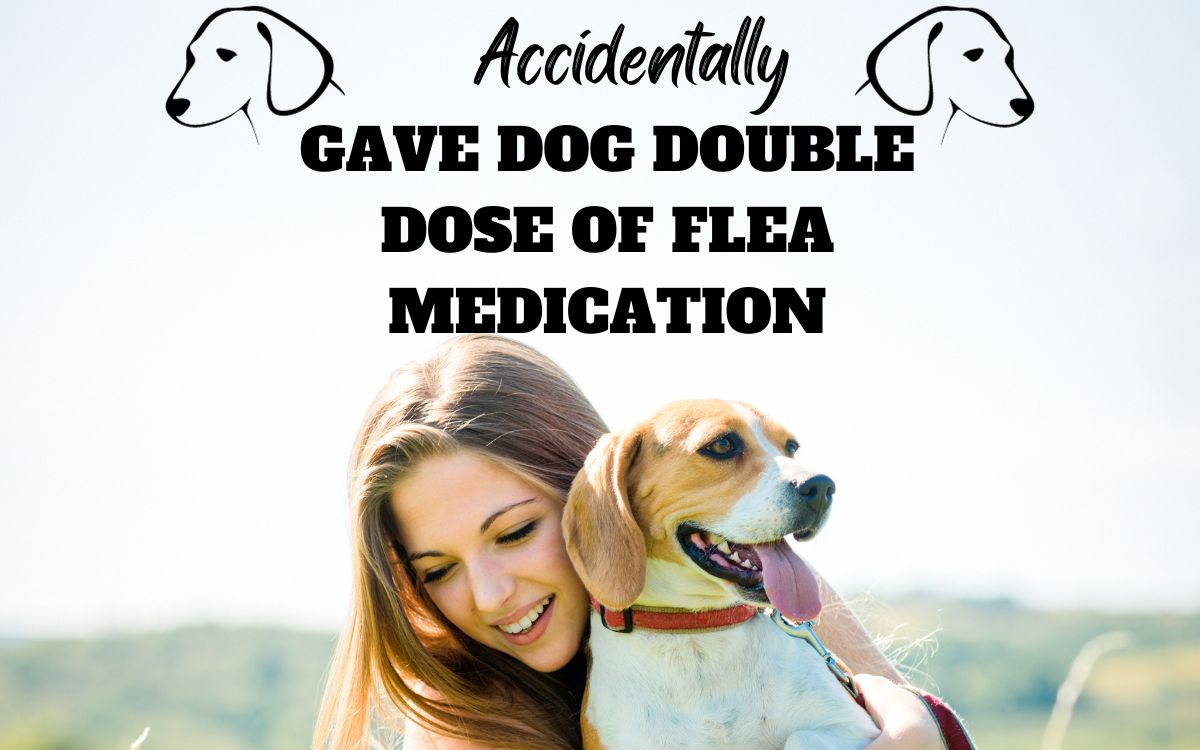I accidentally gave dog double dose of flea medication. As the realization sank in, I couldn’t help but wonder what this meant for our poor pooch – would she be okay or would there be unforeseen side effects?
Join me as we explore the aftermath of this accidental overdose and discover what steps can be taken to prevent such mishaps in the future.
Have you ever had a moment where you realized your innocent mistake could have serious consequences? Well, let me tell you about my recent mishap with flea medication and my beloved dog. It all started when I noticed a few pesky critters crawling on my pup’s fur, and in a panic, I grabbed the nearest bottle of flea medication. Little did I know that in my rush to rid our home of these pests.
Table of Contents
The mishap with flea medication
If you have experienced a mishap with flea medication, it is important to take immediate action to ensure the safety and well-being of your pet. The first step is to contact your veterinarian and explain the situation in detail. They will be able to provide guidance on what steps to take next based on the specific circumstances.
In the meantime, it is crucial to carefully monitor your pet for any signs of adverse reactions or discomfort. This may include excessive scratching, redness, or irritation at the application site, vomiting, diarrhea, or any other unusual behavior. If you notice any concerning symptoms, do not hesitate to seek veterinary care right away.
Remember, prevention is always better than dealing with a mishap after it has occurred. It is essential to follow the instructions provided by the manufacturer and consult with your veterinarian before using any flea medication on your pet.
Understanding the potential risks of double dosing
Double dosing refers to the act of giving a dog a higher dosage of medication than prescribed or recommended. While it may seem like a quick fix for treating an ailment, it can pose serious risks to your furry friend.
One potential risk is drug toxicity, as certain medications can have harmful effects on the body when given in excess. This can lead to symptoms such as vomiting, diarrhea, lethargy, and even organ damage.
Another risk of double dosing is the potential for drug interactions. Dogs often take multiple medications for various health conditions, and giving them an extra dose without consulting a veterinarian can increase the likelihood of adverse reactions between drugs. These interactions can range from mild discomfort to life-threatening situations.
Signs to watch out for in your dog
There are several signs that you should watch out for in your dog, as they may indicate potential health issues or discomfort. First and foremost, changes in appetite and water intake can be a red flag.
If your dog suddenly loses interest in food or water, or if they start drinking excessively, it could be a sign of an underlying problem such as dental issues, gastrointestinal problems, or kidney disease.
Steps to take if you have accidentally double-dosed
1. Contact a veterinarian: The first thing you should do is call your veterinarian and inform them about the situation. They will be able to provide guidance based on the specific medication and dosage involved. They may recommend monitoring your dogs for any adverse effects or suggest bringing them in for an examination.
2. Observe for symptoms: Keep a close eye on your dogs for any signs of distress or unusual behavior. Symptoms of overdose can vary depending on the medication, but common signs include lethargy, vomiting, diarrhea, tremors, seizures, or difficulty breathing. If you notice any alarming symptoms, contact your vet immediately.
3. Follow the vet’s advice: Your veterinarian may advise inducing vomiting if the medication was recently ingested and has not yet been absorbed by the body. However, this step should only be taken under professional guidance as it can be dangerous if done incorrectly. In some cases, they may recommend supportive care or additional treatments to counteract the effects of the overdose.
Preventing accidental double dosing in the future
1. Keep track of medication administration: Maintain a clear record of the medications your dog is currently taking, including dosage instructions and timing. This will help you stay organized and prevent any confusion or overlap.
2. Use a pill dispenser or organizer: Investing in a pill dispenser or organizer can be extremely helpful in preventing accidental double dosing. These tools allow you to sort medications by day and time, making it easier to keep track of what has already been given.
3. Communicate with your veterinarian: If you have any concerns or questions regarding your dog’s medication, don’t hesitate to reach out to your veterinarian for clarification. They can provide guidance on proper dosage and help you understand any potential risks associated with the medication.
Conclusion: Learning from mistakes and keeping pets safe
In conclusion, it is crucial for pet owners to be aware of the potential dangers in their homes and take necessary precautions to keep their furry friends safe. Learning from common mistakes such as leaving toxic substances within reach or failing to secure hazardous areas can prevent accidents and save lives.
Regularly inspecting the home environment, seeking professional guidance on pet safety, and investing in appropriate pet-proofing measures are essential steps toward creating a safe and nurturing space for our beloved companions.
By being proactive and vigilant, we can ensure that our pets live long, healthy, and happy lives. Let us prioritize their safety and make our homes a sanctuary where they can thrive without any avoidable risks.
Also, Read this Article. Specialized Treatment Plans for Dogs
What happens if I give my dog too much frontline?
If you accidentally give your dog too much Frontline, it can potentially lead to an overdose. Frontline is a topical treatment that contains an active ingredient called fipronil, which is safe for dogs when used as directed. However, using an excessive amount of Frontline can cause adverse reactions such as skin irritation, vomiting, diarrhea, and even neurological symptoms in severe cases.
How soon can I give my dog another flea treatment?
It is generally recommended to wait at least 30 days before giving your dog another flea treatment. This allows enough time for the previous treatment to effectively eliminate any existing fleas and prevent new infestations. Giving your dog multiple flea treatments too close together can be harmful and may result in an overdose of chemicals.
How long does flea medicine toxicity last in dogs
The duration of flea medicine toxicity in dogs can vary depending on the specific medication and the individual dog’s metabolism. In general, most cases of flea medicine toxicity resolve within a few hours to a few days. However, in severe cases or if the medication is ingested in large quantities, it may take longer for the symptoms to subside.










